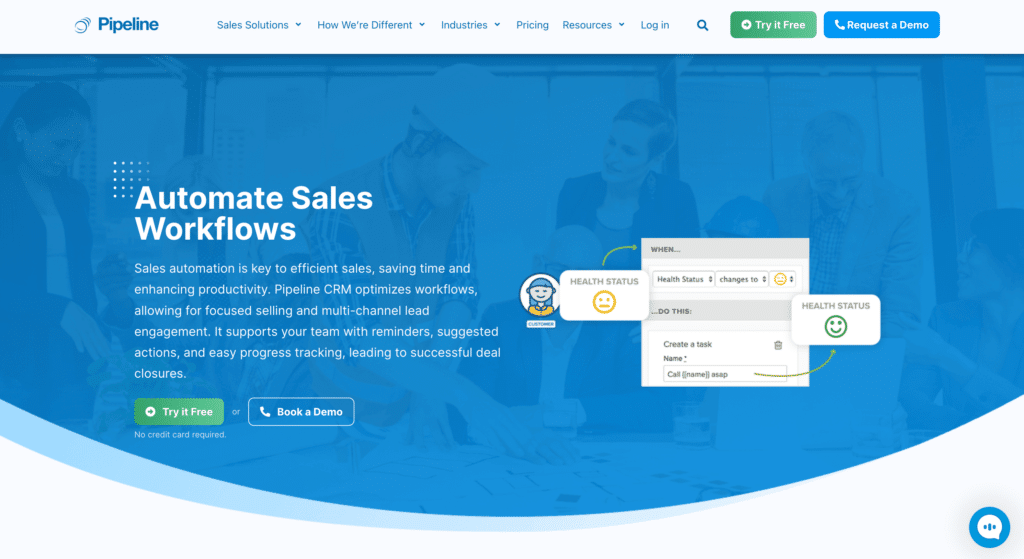4 Major Benefits of Using Transportation and Logistics CRM Software
1. Improved Lead Visibility and Streamlined Communication
2. Increased Productivity Equals Scalability
3. CRM Automates Tedious Tasks
Another reason why transportation and logistics companies need a CRM is that it frees up your time. Administrative tasks, such as creating repetitive orders and payment confirmations, can be time-consuming but are necessary to ensure everything is recorded correctly. Let CRM automate those tasks for you and give you more time to focus on building meaningful relationships.

Did you know that Pipeline CRM will instantly create a new deal when a recurring deal is closed? Learn more about our smart automation workflow here.
4. CRM Improves On-Time Shipments
When you have all the data in one place and is shared across departments, you can better manage the shipping schedule. You’ll easily know the operating time of warehouses, the left capacity of your fleets, and which shipments are top priority and which are delayed. This will ensure you have a smooth-running business.
Grow Your Transportation and Logistics Company with a CRM
Create well-oiled transportation and logistics operations with Pipeline CRM—a simple yet powerful CRM that allows you to track all your team tasks, deals, shipments, and more from your dashboard, regardless of where you are. Our mobile app enables you to connect your in-office and on-the-road workers seamlessly—allowing everyone to get the latest updates on projects. Check other Pipeline CRM’s top features to learn more.
FAQs - Why Transportation and Logistics Companies Need CRM Software
1. What Is a CRM in Transportation?
A CRM (customer relationship management) in transportation and logistics enhances your business operations by streamlining communication and data sharing between your sales team and leads and between the departments. As a result, you’ll accelerate the deal closing rates, improve shipment/delivery performance, and gain more happy customers.
2. How Can a CRM Help Transportation and Logistics Companies?
Here are some examples of how CRM software can help transportation and logistics companies:
- Contact management: easily add, edit, and group leads for effective sales outreach campaigns.
- Customizable deal stages: tailor your sales processes to match your sales pipeline workflow.
- Lead tracking: set up automated follow-up emails or reminders to ensure no leads slip through the cracks.
- Clean data: configure specific rules in inputting contact and sales data to keep your CRM data accurate and updated.
3. What Is the Best CRM for Transportation and Logistics Companies?
Pipeline is one of the best CRMs for transportation and logistics companies, especially for those looking to streamline and automate their sales workflows. You can set up automation on repeat orders and email campaigns, easily map and record bids’ progress, and generate accurate sales forecasting. Furthermore, compared to other CRM tools, we offer an affordable plan starting at $25 per user per month.
4. How Do I Choose the Right Transportation and Logistics CRM?
Here are a few features you should look for when choosing a transportation and logistics CRM:
- Customizable workflows and data points
- Advanced features on sales management, reporting, and forecasting
- Support automation, especially for doing administrative and repetitive tasks
- Vast integrations with tools you already use
- User-friendly navigation system with a quick setup process
- Scalable CRM that can grow with you without breaking the bank


